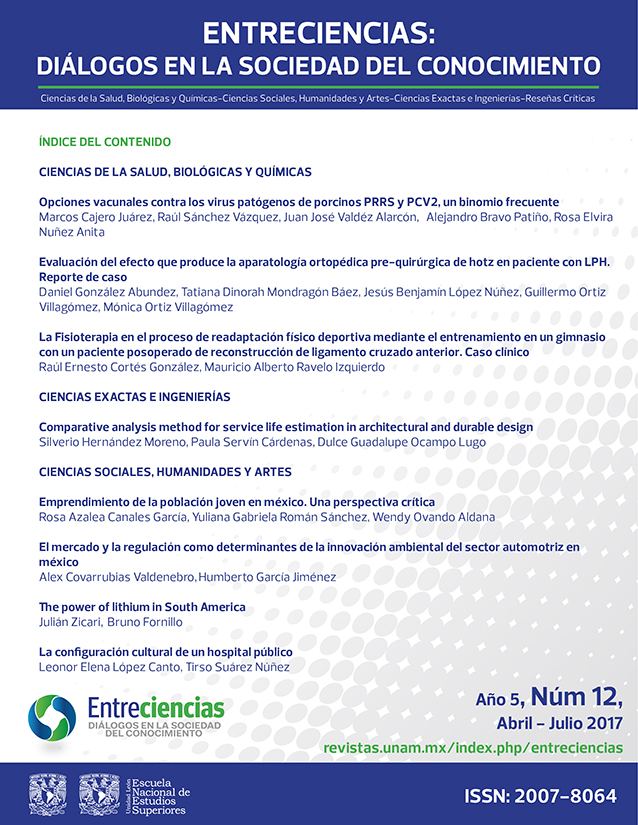The Power of Lithium in South America
Main Article Content
Abstract
A central cause of global environmental change is the emission of CO2 emitted by the energy matrix, predominantly based on fossil fuels. As a result, we must face an "energy transition" supported by renewable and sustainable sources. Lithium batteries would contribute to this completely renewable energy system, as they could serve to traction transport, act as a sustainable energy reserve (which is mostly electric), and enable the mobility of multiple devices. In South America we find 80 percent of the most profitable lithium reserves in the world, in the "Lithium Triangle" formed by the Andean salt flats in Argentina, Bolivia and Chile, which generates the enthusiasm to participate in the emerging energy carrier. In this context, we will explore the world market of lithium and batteries, the overall situation of its exploitation, and the attempts to create a link between the Southern Cone countries with lithium reserves and their various attempts to manufacture lithium-ion batteries.
Downloads
Article Details

Entreciencias: Diálogos en la Sociedad del Conocimiento recognizes and respects the moral rights of authors as well as ownership rights transferred in non-exclusivity to the journal for its open access dissemination and its preservation. Hence, authors who publish in this journal accept the following conditions:
- Entreciencias: Diálogos en la Sociedad del Conocimiento from Universidad Nacional Autónoma de México is distributed under a Licencia Creative Commons Atribución-NoComercial-SinDerivar 4.0 Internacional, which allows the information and metadata to be used without commercial ends as long as proper citation is utilized.
Authors will have the right to non-exclusively distribute the contribution made to Entreciencias: Diálogos en la Sociedad del Conocimiento. That is, they will be able to include it in an institutional repository or disseminate it in other digital or printed media as long as it is explicitly stated that it was first published in Entreciencias: Diálogos en la Sociedad del Conocimiento. The following information must additionally be included: author, year, volume, page numbers, electronic paging, and DOI.
Authors, whose publications have been accepted, will have to send the Letter of Copyright Transfer in the corresponding format, filled out and signed by the author or authors.
